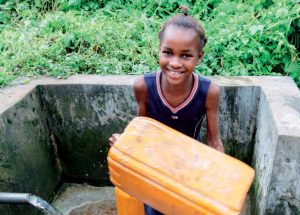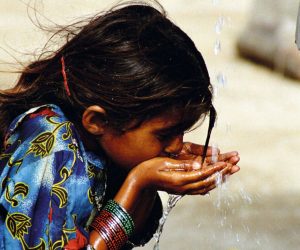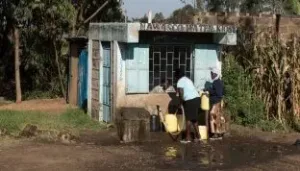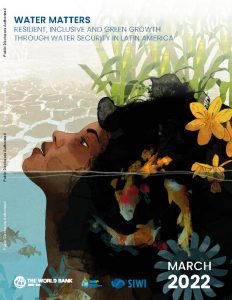WASH Accountability in fragile contexts
This Concept Note is the fifth document of a series on Accountability in WASH service delivery that the Stockholm International Water Institute, UNDP and UNICEF have jointly published under the Accountability for Sustainability programme.
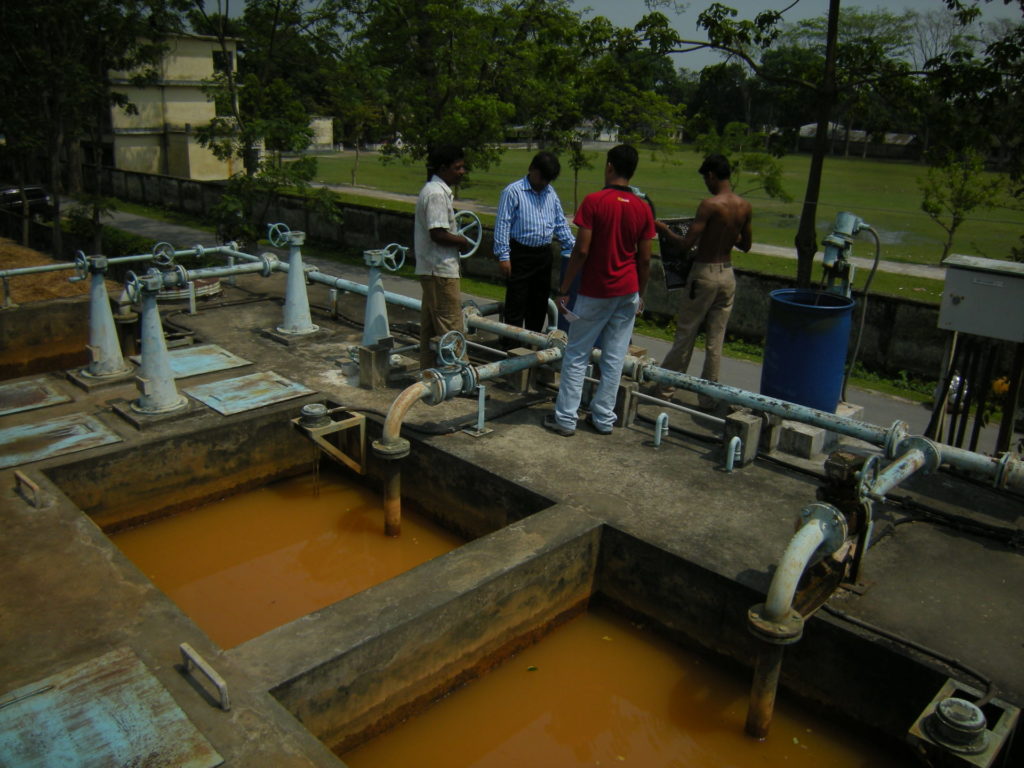
Accountability can be described test as “the central and perhaps most powerful element of good governance”. Accountability for Water, Sanitation and Hygiene (WASH) service delivery refers to the principle whereby government officials and those that have a responsibility in water services account for their actions and answer to those they serve. This is fundamental in fragile contexts, characterized by low levels of trust across stakeholders, limited capacities and high vulnerability of the population. Improving accountability is essential to bring back trust, state legitimacy, and improved and sustainable service delivery. Fragile contexts require an adaptation of regular models of WASH service deliveries applicable in stable contexts. These contexts contain additional actors and different accountability relations in light of the diminished presence or functioning of the state and sector institutions.
This Concept Note is the fifth document of a series on Accountability in WASH service delivery that SIWI, UNDP and UNICEF have jointly published under the Accountability for Sustainability programme. It deepens the analysis of accountability actors and relations around WASH service provision in fragile contexts. It does so by using the analytical frameworks of the Accountability Mapping Tools presented in previous publications. It is intended to give a framework for WASH practitioners and government partners to analyze and improve their interventions in fragile contexts through an approach based on reinforcing the government leadership role and improving accountability within the WASH service delivery framework.
The first section of this Concept Note describes the background of fragility: what it means in terms of access to services and the evolution of the efforts made to assure aid effectiveness in those contexts. It also intends to shed some light on the role that External Support Agencies (ESAs)[5] can play in humanitarian and development situations.
The second section, which is the core of the report, presents an approach to intervening under these fragile contexts based on strengthening the accountability relationships of the stakeholders involved. It first describes the different accountability frameworks under humanitarian action as well as in purely stable situations. Because fragile contexts are typically a combination of both situations (i.e. exposure to risk as well as insufficient coping capacity of the state, system and/or communities to manage, absorb or mitigate those risks), the differences of mandate, approach and accountability across key humanitarian, development and governmental actors are important components of the often-confusing service delivery under fragile contexts. The report presents the multi-layered accountability framework as a tool to understand this complexity. It then applies the framework to five scenarios of fragility: 1) latent crisis, 2) acute crisis, 3) protracted crisis, 4) post crisis or recovery, and 5) fragility without crises. For each scenario, the service delivery accountability framework is described, along with recommendations to improve accountability relations towards restoring the (ideal) accountability framework.
Finally, the conclusion condenses the learnings of the document in a series of principles for action in these fragility contexts, as the specific activities will depend on the fragility context and scenarios.
The first principle refers to understanding the existing accountability framework and the political nature of service delivery in fragile contexts, which is the basis of this Concept Note.
The second principle refers to the need to rebuild trust among the key national stakeholders (citizens, service providers, regulators and policy makers) while improving the quality of services. This includes engagement with the government at both national and local levels, the support of government-led coordination and the use of government financial systems to the extent possible. In addition, developing stronger citizen–state accountability relations is critical.
The third principle refers to work that proactively moves towards the re-establishment of the national service delivery framework. Phasing out, as soon as possible, provisional service delivery arrangements that undermine the national accountability framework should be a priority.
The fourth principle refers to the need to invest more in preparedness, conflict prevention and building sector resilience, with a more long-term, risk-informed approach. Humanitarian support and development support should work more closely together. From the humanitarian end, long-term sustainability should be an essential part of the strategy, while from the development end, disaster preparedness and risk reduction require further attention. Disaster risk reduction, including preparedness, is needed to anticipate a potential crisis eruption; but today, less than 0.5% of Official Development Assistance is spent on preparedness.
The fifth principle relates to continued capacity development and systems strengthening. It is crucial that the capacities for preparedness and emergency response are embedded in national development plans, structures and capacities and supported by appropriate information systems. Across all principles, processes should be conducted in the most participatory (opening the opportunity for actors to voice their needs), inclusive (having a broad representation of different groups, including traditionally marginalized ones) and evidence-based manner possible and communicated to all affected stakeholders with transparency. Only then will efforts reinforce legitimacy and trust within the country while delivering sustainable WASH services.
Citation
SIWI/UNICEF (2020) “WASH Accountability in fragile contexts” UNICEF–UNDP–SIWI Accountability for Sustainability Partnership. Stockholm and New York
SIWI/UNICEF (2020) “WASH Accountability in fragile contexts” UNICEF–UNDP–SIWI Accountability for Sustainability Partnership. Stockholm and New York
